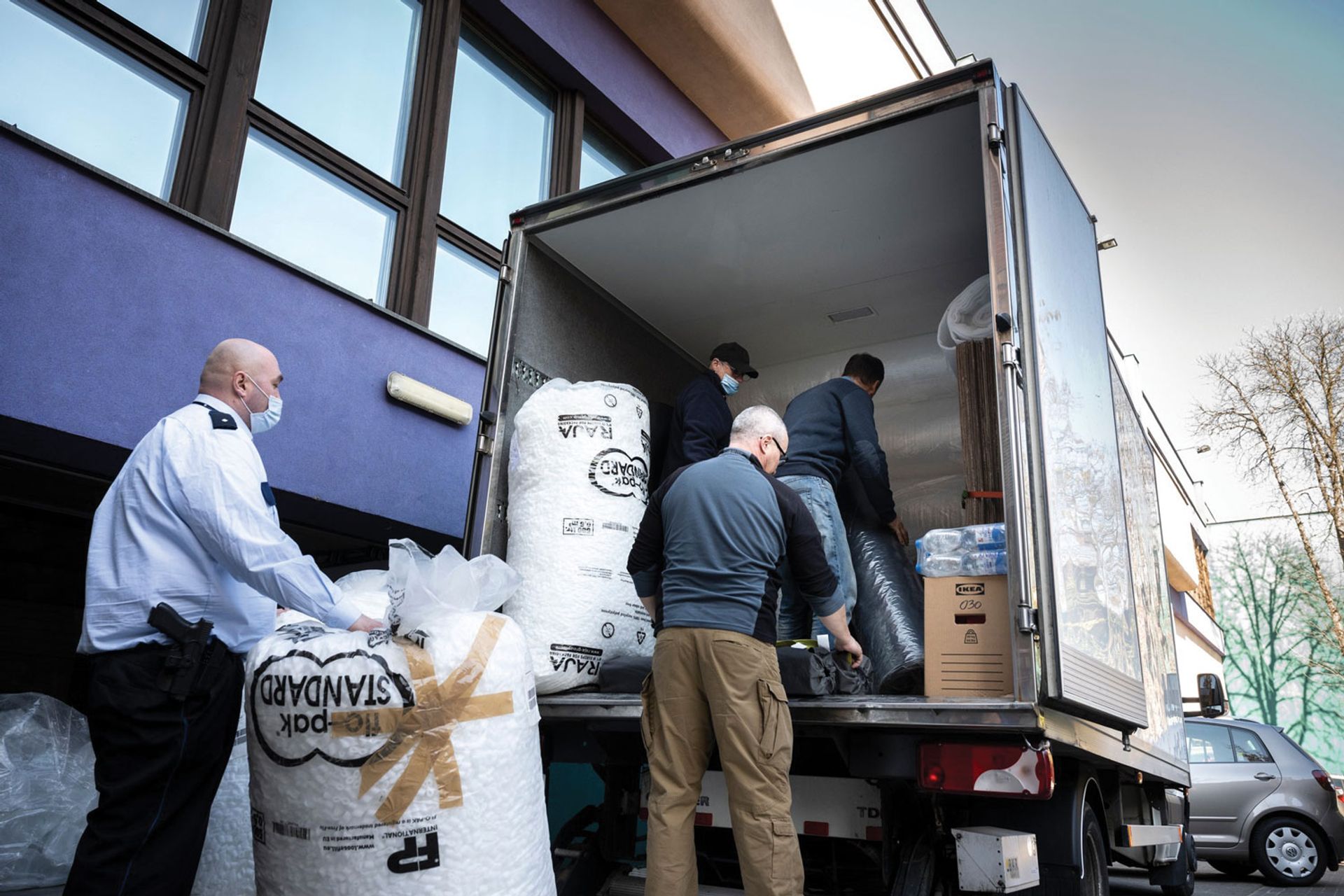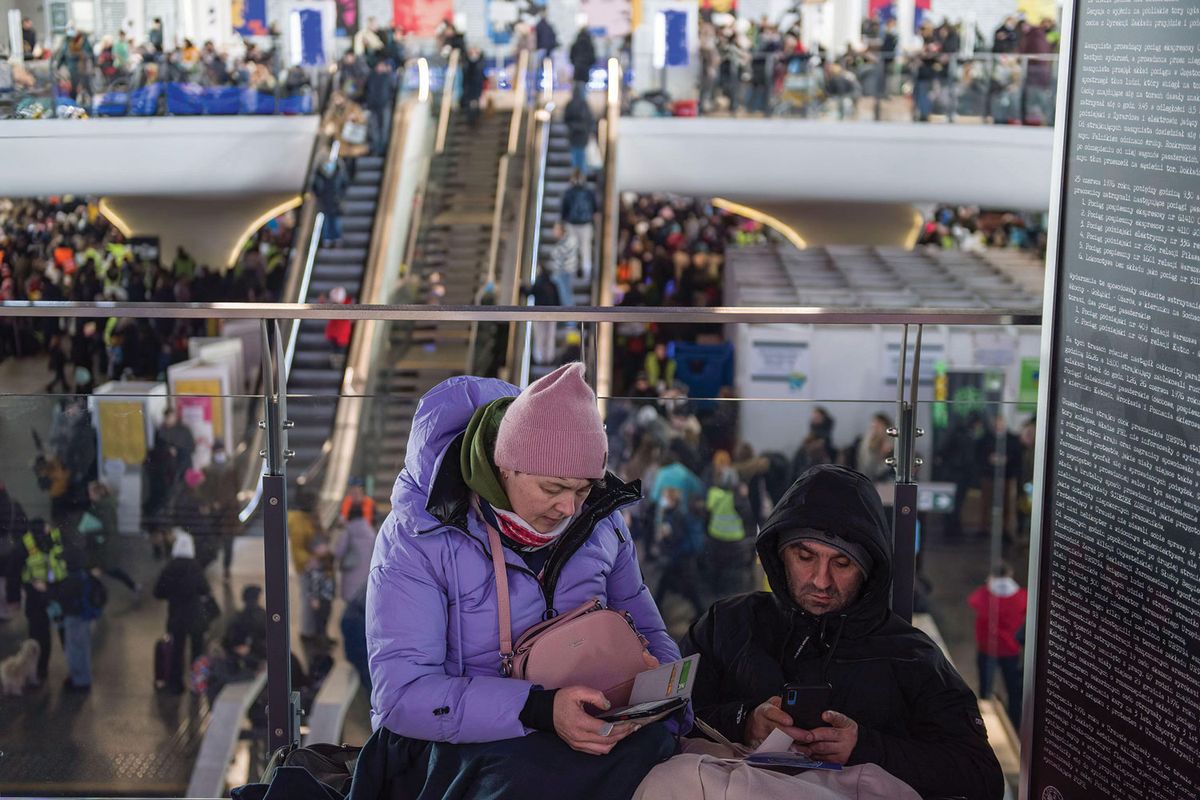Cultural institutions and their employees across Poland are mobilising a groundswell of support for their counterparts across the border in Ukraine, sending emergency aid and supplies, organising fundraising initiatives and opening their homes to refugees.
Poland is currently on the frontline of what the UN Refugee Agency says is a “rapidly evolving humanitarian crisis” in Ukraine. As of 21 March, more than 3.5 million people are estimated to have fled the war, with 2.1 million of them entering Poland.
Describing the rapid response from the Polish museum community, the Warsaw-based Jack Lohman says: “Every museum is engaged right now. The larger ones are sending transport with packing materials for works of art, as museums in Ukraine were not prepared for evacuation. Others are involved in assisting families of museum employees fleeing and still others are collecting funds. Everyone now has someone staying with them; many have whole families.”
Lohman, a former director of the Museum of London and former chairman of the National Museum in Warsaw, has been welcoming refugees at Warsaw Central train station as a volunteer. “The general mood could be described as the equivalent of the 1940 Blitz spirit,” he says. “Quite buoyant, but people—refugees and volunteers—look and sound exhausted, and I see many who need counselling.”
Noting that his own contribution is part of “a tidal wave of civic mobilisation”, Lohman estimates the number of Ukrainian people being housed by members of Poland’s museum community to have reached the thousands. Some of the refugees made prior contact through museum networks, while others are not connected to the cultural sector.

The National Museum in Poznan sent packing materials needed to secure works of art, along with food and medical supplies, across the Ukrainian border to the National Art Gallery in Lviv Photo: Sonia Bober/Muzeum Narodowe w Poznaniu
Backed by the culture ministry, a number of organisations are involved in the wider support effort. Piotr Rypson, the director of the Polish branch of the International Council of Museums, says that the organisation is focused on “mapping the presence of museum people from Ukraine who are refugees in Poland—who and where they are, and what is needed—and preparing emergency grants for these professionals that are already in Poland”.
Co-ordination challenge
The National Institute of Cultural Heritage (NID) and the Cultural Heritage Foundation, among others, have been collecting protective equipment, including fire extinguishers, fire blankets and mineral wool, to send to institutions in Ukraine. The biggest challenge, according to the NID’s director, Katarzyna Zalasińska, “is to co-ordinate all the activities and find out what the needs of the Ukrainian institutions are”. Her institution has been in contact with conservators and the directors of museums and archives still in Ukraine. “Thanks to this, it was possible to create a map of needs and we will try to reach all of them,” she says.
Leading figures from 26 Polish museums have also come together to form the Committee for Aid to Museums of Ukraine. Its members include Joanna Mytkowska, the director of Warsaw’s Museum of Modern Art; Jan Ołdakowski, the director of the Warsaw Rising Museum; and Piotr Cywiński, the director of the Auschwitz-Birkenau State Museum.
While the collective response has been impressive, Zalasińska is concerned that it will soon be too difficult to transport supplies inside Ukraine. “We feel powerless,” she says, “and empathise with the drama of Ukraine. Our heritage, including 90% of Warsaw with its precious monuments, was cruelly destroyed during World War II. We are now seeing the same images in Kharkiv, for example. We tremble for Lviv, a World Heritage site. Poles know how Ukraine feels like no one else and we know how terrible the loss of culture is in every war.”
Asked how the wider museum world can offer support to Ukraine, Lohman suggests that cultural professionals overseas “could reach out and connect with the Ukrainian diaspora on their doorstep” to channel immediate aid to those seeking new homes and jobs. In the longer term, international heritage experts will be needed for “the massive repair and reconstruction job to come”, he adds. “I think this is where their future strength will be so important.”
In Germany, meanwhile, the Berlin-based Ernst von Siemens Art Foundation has established a programme offering Ukrainian and Russian refugee curators work in German museums, with financial support covering their roles for one year.


